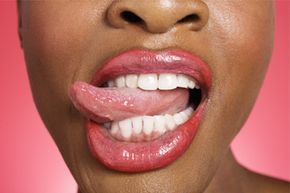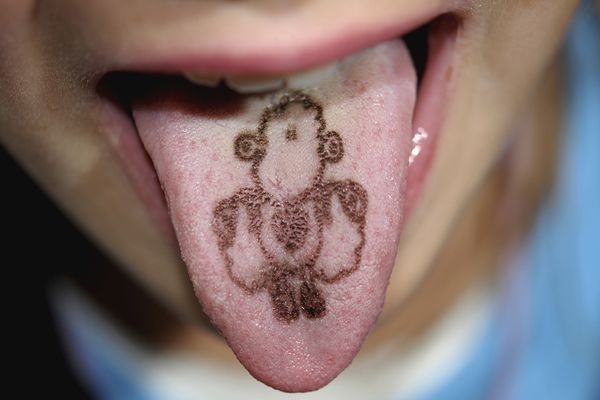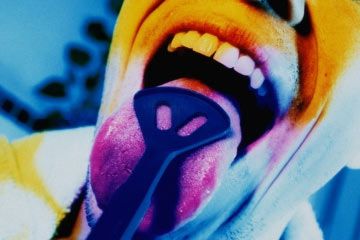The average mouth is teeming with bacteria. In fact, oral ecologists — those who study the microbiome of the human mouth — have discovered at least 400 species among the billions of microorganisms that make themselves at home in the kisser [source: Stevens]. In the mix, are numerous bacteria that can lead to infection or disease. Since we know that cuts and tears in the skin let bacteria in, and we know that mouth is full of bacteria, why doesn't biting the tongue lead to an infected mouth?
Actually, in rare cases, the tongue can get infected from a self-inflicted bite. This most likely happens to someone who has a compromised immune system. Most of the time, however, the tongue and mouth are protected from infection. And, not all tongue bites break the outer tissue of the tongue. If you don't see or taste blood after biting it, chances are no laceration occurred.
Advertisement
But even when the tongue is cut, infections are uncommon and the tongue usually heals on its own, most likely due to the large amount of friendly flora found in the mouth. Both the salivary glands and mucosal secretions contain secretory immunoglobulin A (SIgA), which is an antibody that can live in tough environments, defy degradation and fend off multitudes of microbes. In addition, the mouth is covered in blood vessels, which also contain antibacterial properties.
Of course, no defense is perfect. It's a good idea to keep your mouth as healthy as possible. Good dental hygiene practices, such as brushing twice daily, flossing and visiting the dentist on a regular basis can keep dangerous oral bacteria at minimal levels. It also reduces the likelihood of infection from accidents like tongue biting.
If, however, you bite your tongue and find yourself with signs of an infection — such as swelling, pain or fever — contact your dentist for a course of antibiotics.
Advertisement



